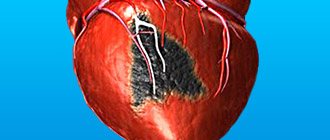Children copy the actions of their parents, trying to be like them. If they watch with what pleasure mom or dad savors a cup of espresso, sooner or later the phrase will sound: “I want it too!” However, a growing organism is very different from an adult organism.
In order not to cause harm, you need to know at what age children can drink coffee, and the opinion of doctors on this matter. Most often the age range is from 6 to 15 years. So, can you pamper your schoolchild with a cup of sweet cappuccino or is it better to wait?
At what age can children drink coffee: the benefits and harms of caffeine for a child
Many fathers and mothers are concerned - can children have coffee? The aroma of an invigorating drink with milk foam was enjoyed not only by parents. Kids are always interested in what is poured in an adult’s cup. Therefore, they try by any means to try something new, previously unknown. It is difficult for loving parents to resist the onslaught and it all starts with a delicious foam, then a small sip and finally a separate mug with an invigorating drink.
But children’s bodies are in the developing stages and internal organs may react differently to the effects of caffeine. Therefore, it is extremely important to know at what age can children drink coffee? It’s better to immediately introduce your baby to safe, but no less tasty, decaffeinated coffee.
Excess caffeine
These are all positives as long as you take the correct daily dose of caffeine. It should not exceed 100 milliliters. Considering that a cup of coffee can contain around 35 milliliters of caffeine, it would be wise to limit yourself to 2 or a maximum of 3 cups per day.
Excessive caffeine consumption can lead to problems with nervousness, insomnia and heart disorders.
Not to mention aesthetic disorders: coffee consumed in excessive doses tends to stain teeth.
It should also be taken into account that even in the case of pregnancy and lactation, high doses of caffeine can cause problems for the body, in addition to general problems.
Beneficial properties of coffee for children's bodies
The invigorating drink contains a whole group of vitamins and minerals that affect the child’s well-being. Knowing at what age children can drink coffee, its consumption will have a beneficial effect on the immune system, speeding up the metabolism in the body.
Properly prepared drink:
- improves blood flow to the brain;
- will invigorate and lift your spirits;
- will increase concentration and attention;
- relieves the feeling of fatigue;
- will give an adrenaline rush;
- protects the body from radiation.
If you know at what age children can drink coffee , the drink will bring many benefits, because it is rich in:
- vitamins A, D;
- mineral compounds;
- calcium;
- phosphorus;
- magnesium
These are important substances for the fragile body. However, abusing the invigorating drink will not bring any benefit. Although this does not apply to the new coffee for children, which is caffeine-free.
Drink harm to baby
Doctors contraindicate frequent consumption of products containing caffeine, especially for children. It is advisable to know not only at what age coffee can be consumed, but also the negative consequences of the drink, which:
- adversely affects hormonal levels during puberty;
- increases adrenaline, causing heart rhythm disturbances;
- increases blood pressure, which is dangerous for hypertensive patients;
- raises sugar, which has a detrimental effect on the pancreas;
- removes useful substances from the body in large quantities.
So can a child have coffee? Despite the danger for a fragile body, one should not draw hasty conclusions. The main thing is not to accustom your child to the drink from an early age or give decaffeinated coffee, which can be drunk by children from 6-7 years old.
Why children shouldn't drink coffee
Among reasonable parents, the prevailing opinion is that coffee does more harm to a child than good. Doctors support them in this, citing quite compelling arguments.
- Caffeine has too strong an effect on the developing nervous system, leads to excessive activity, disrupts sleep and makes the child excitable.
- Activation of adrenaline production provides not only vigor, but also increased heart rate, as well as heart rhythm disturbances. A small heart may begin to beat too quickly and unevenly, and this is unsafe.
- Caffeine increases blood sugar levels due to the release of glucose. This can lead to an imbalance in the pancreas.
- Caffeine has a pronounced diuretic effect. Because of this, there is an active leaching of calcium, which is so important for the proper growth of the skeletal system. A lack of calcium leads to a slowdown in the formation of teeth, deterioration in their quality, brittle nails and hair loss. In addition to calcium, potassium, magnesium, and other useful mineral compounds are washed out. If at the same time the child takes vitamins, then they are excreted too actively and do not have time to be absorbed.
Caffeine, like most active organic substances, can be quickly addictive
The main danger associated with drinking coffee at a young age is that it is very difficult to calculate a safe dose of caffeine for a child's constantly changing body.
The difference in maturation, weight gain, and processes occurring in the body of children of approximately the same age makes it even more difficult to determine an acceptable dose of caffeine. Therefore, it is better to avoid adding this alkaloid to children’s diets altogether.
Optimal age for coffee
To figure out at what age children can drink coffee, you need to consider different groups:
- Drinking coffee is not recommended for children under 5 years of age. A fragile nervous system may react differently to caffeine. Increased excitability is usually observed.
- By the age of five, most children have already tried a drink from their parent's cup. However, their nervous system is still at the stage of formation. Therefore, in rare cases, you can give a weak drink with a large amount of milk.
- 12-year-olds want to be like their older peers. Coffee is becoming a new attribute of life. At this age, you should not abuse caffeine. This is due to hormonal changes in the body.
So at what age can you give your child coffee? According to doctors, it is safe to drink the invigorating drink from the age of 14. Although it must be taken into account that puberty occurs differently for all people. It is important to make sure that the child’s hormonal surges have already passed. It is advisable to convince the teenager that coffee is not a substitute for water.
Caffeine is everywhere
Even if you don't give your child coffee until age 15, there is a 99% chance that he will get caffeine from other drinks and foods. After all, this natural alkaloid is also found in tea (both black and green), chocolate (and therefore cocoa) and Coca-Cola. And if the tonic substance in tea and cocoa is contained in smaller quantities, then Coca-Cola can compete with espresso, because teenagers drink it in large bottles, not tiny cups.
| Drinks and food | Caffeine in 100 ml/g (mg) |
| Espresso | 200 – 250 |
| Black coffee from Turkey | 50 – 60 |
| Cocoa (drink made from natural powder) | 5 – 10 |
| Cocoa (instant drink) | 2 – 3 |
| Black tea | 5 – 25 |
| Green tea | 10 – 18 |
| Dark chocolate | 45 – 70 |
| Milk chocolate | 20 – 25 |
Since the alkaloid is present in everyday foods, you need to take its amount into account when preparing your diet. If you drank cappuccino in the morning, you can no longer eat chocolate or drink tea with cocoa and especially Coca-Cola that day.
Safe coffee for children
There are different types of caffeinated drinks available on the market today. To understand whether children can drink coffee, you need to take into account the child’s age, the permissible caffeine content, the presence of milk and other nuances. The healthiest drink is considered to be made from natural coffee beans. It is rich in natural antioxidants and microelements. It is advisable to add milk containing calcium.
The best solution for children 6-7 years old is decaffeinated coffee. It is absolutely safe for a fragile child’s body. Special children's coffee tastes no different from regular coffee. It fills the body with energy and does not have the disadvantages of a usually invigorating drink.
Which coffee is contraindicated for children?
So how old can children have coffee? Here you need to build on the quality of the drink. Parents always try to give the best to their child. Therefore, you should not start with instant coffee. It is made from synthetic components, so the content of substances beneficial to health is minimal. Compared to natural grains, it does not contain vitamins, acids or microelements. Its use is not beneficial even for adults.
Instant coffee is a cheaper version of the natural product. It gives a short-term effect of vivacity and an influx of strength. It does not contain vitamins or other beneficial components. Powder and granules are obtained artificially, not naturally. Therefore, we are not talking about the benefits of such a drink and it is pointless to figure out at what age children can give coffee.
The effects of coffee on a child's body
Coffee contains several hundred chemical compounds, and each of them has its own effect on the human body. But nature has endowed adults with a mechanism to neutralize the harmful effects of the drink. The child’s body is growing and developing, so the reaction to any substance is more acute.
Coffee contains:
- caffeine (about one and a half times more in Robusta than in Arabica);
- tannins (tannins);
- organic acids: chlorogenic, tartaric, malic, citric, caffeic, oxalic;
- fats;
- amino acids;
- sucrose.
Of the following substances, caffeine has the strongest effect on the child’s body:
- stimulates the nervous system;
- eliminates lethargy, drowsiness;
- promotes concentration, improves mental activity;
- improves mood;
- accelerates metabolism, stimulates the production of gastric juice;
- has a diuretic effect.
At first glance, there is nothing in the above list of caffeine properties that could seriously harm a child. However, for all these benefits, the child’s body pays an exorbitant price.
Coffee can really “wake up” a child and temporarily make him collected and energetic. But the body draws this energy from its own reserves, and after 3-4 hours, vigor gives way to lethargy and apathy. If you drink coffee in the morning, then the kickback occurs right in the middle of the school day, when concentration is especially needed.
Excitation of the nervous system also does not go unnoticed: in many children it is already unstable. Because of caffeine, children become capricious, stubborn, and experience sudden mood swings: from laughter they easily turn to tears and vice versa. If a child drinks coffee too often, he becomes emotionally unstable and his behavior worsens.
The effect of coffee on hormonal levels is especially detrimental. The mood after drinking the drink increases due to the fact that caffeine promotes the production of adrenaline, which increases metabolism, and dopamine, the “happiness hormone.” A sharp surge in hormonal levels in children and adolescents during puberty is very dangerous. It can cause disruptions in the formation of the hormonal system.
Getting used to caffeine
Caffeine has narcotic properties, and children get used to it faster than adults. A child who is often given coffee begins to perceive it as a source of pleasant sensations. But over time they become dull as a habit develops. As a result, the teenager seeks stronger substances that cause a state of euphoria: nicotine, alcohol, and sometimes hard drugs.
Coffee and the digestive system
Caffeine stimulates the production of gastric juice, which speeds up the digestion of food, and the child feels hungry faster. To curb their appetite, children usually eat a bun or a chocolate bar, that is, foods with “empty” calories, with little or no vitamins and other nutrients.
It’s good if after this the student goes to physical education class, where he spends extra calories. But if after a snack a child has to sit in class for several lessons, then the likelihood of excess weight increases, which in adulthood threatens obesity.
Drinking coffee on an empty stomach causes serious consequences. Gastric juice and organic acids contained in the drink burn the gastric mucosa, causing gastritis. In addition, tannins contribute to constipation, and a clogged intestine is the root cause of many gastrointestinal diseases.
Coffee and the cardiovascular system
Coffee speeds up the contraction of the heart muscle. In children with weak blood vessels, an accelerated heartbeat, increased blood circulation and increased blood pressure can cause dizziness, vomiting, and in severe cases, a stroke.
Vitamin leaching
Caffeine is a diuretic. Frequent urination puts a strain on the kidneys, and beneficial substances are washed out of the body, primarily potassium and calcium. Potassium is necessary for the heart, calcium is involved in the formation of bone tissue. With a lack of calcium, bones become brittle and break due to the slightest blow or fall.
How to make coffee for a child
You can prepare special children's coffee for your child in the same way as you prepare for yourself. This coffee can be given to a child with or without milk.
When preparing regular caffeinated coffee, it is better to dilute it with water, milk or cream to a third of the original volume. This will reduce the strength and will not cause excessive stimulation. It is not recommended to give more than two mugs of regular coffee throughout the day. It is advisable that the drink be taken in the first half before lunch.
As for children's coffee, it will not affect sleep and the nervous system and can be drunk in the afternoon, since it does not contain caffeine.
“Coffee and children” in questions and answers
We have collected the most popular questions and opinions of parents on the topic, and we will try to answer them from a medical point of view.
Question:
— I give my son coffee in the morning so that he wakes up faster. Isn't this harmful?
Answer:
“Many parents explain their choice by the need to cheer up the child and help him become more active. For this, there are other means that are more gentle on the growing body. For example, black sweet tea with lemon, cocoa, preferably not instant, but brewed, green tea will perfectly help you wake up in the morning.
— A small morning activity in the form of light exercises will be much more effective than a cup of coffee. The body will not only invigorate, but also adapt to the daily stress.
Question:
— Natural coffee contains the most caffeine. Is it possible to give a child soluble?
Answer:
— Indeed, natural coffee is stronger. However, you should not give your child instant coffee. This type of drink is a chemically created ersatz that negatively affects the functioning of the stomach and pancreas. Modern research allows us to trace the direct dependence of the increase in chronic diseases of the gastrointestinal tract on the consumption of instant coffee. So it is not recommended to give instant coffee to your child at any age.
Question:
— Is it possible to give a child decaffeinated coffee?
Answer:
— In order to deprive the beans of caffeine, they are treated with certain chemical compounds. Some of them contain benzene, which is known to be highly carcinogenic. Others are ethyl acetate, which is more popular as an acetic acid-based solvent. There are, of course, other, gentler technologies, but when you buy decaffeinated coffee in a store, you don’t know what exactly its beans have been processed with.
— As for the natural variety of decaffeinated coffee, which was discovered in 2004, its beans contain theobromine. This substance is also an alkaloid, is a close relative of caffeine and has very similar effects, in particular, it increases the frequency of contraction of the heart muscle.
— As practice shows, it is not possible to completely remove caffeine from coffee beans. Its content can be significantly reduced, but it is not completely removed. Coffee beans labeled "decaffeinated" contain between 0.1% and 1% of this active stimulant. Therefore, we are again faced with the question of how much caffeine is safe for any given child? Decaffeinated coffee is a good alternative, but it is intended for adults.
Milk, cream, lemon reduce the active properties of caffeine in the finished drink.
Whether to give or forbid a child to drink coffee is up to each parent to decide for themselves. Even if the decision is positive, the portions should be very small. The recommended frequency of drinking an invigorating drink for a child is no more than once a week.
What foods contain caffeine?
The question - can children drink coffee does not have a clear answer, because caffeine is contained in many other products that parents consider safe for the child.
Among the leaders in caffeine content it is worth highlighting:
- Black and green tea. Moreover, the latter contains the substance in larger quantities. Maximum concentration of caffeine in ripened leaves.
- Dark and milk chocolate. There are 30 g of caffeine per 100 g of product. Eating chocolate, like coffee, gives you a surge of energy and strength.
- Mate. A plant product that is used in making tea. Its leaves contain caffeine. The drink is popular among Americans living in the center and south of the United States. These are the main places where the plant grows. The drink has a sweetish aftertaste and a bitter aftertaste. It improves the functioning of the digestive system.
- Energy. These drinks contain a huge concentration of caffeine. They are contraindicated for children. One jar can contain up to 40 mg of caffeine. Plus, the drink contains a lot of sugar, which has a detrimental effect on digestion. In large quantities they are contraindicated even for adults.
- Cocoa. This drink is loved by adults and children. But it also has a high concentration of caffeine. The maximum amount of the substance is contained in powder with a large amount of fat.
How to reduce harm
You can try switching your child to foods that are safer for him: chicory or barley drink. But they are similar only in their bitter taste and not everyone will like them.
To prevent a young coffee lover from ruining his health, you need to teach him to drink the right coffee in reasonable quantities:
- instant drink does not provide any benefit , so it is prohibited for teenagers. The same goes for coffee from vending machines and especially 3-in-1 options from bags. Among other things, they are also very high in calories. The best choice for both children and adults is brewed from freshly ground Arabica beans. The degree of roasting is preferable to medium: light roasting has too much caffeine, and dark roasting creates carcinogens when overheated;
- From the age of 7, children can drink coffee with milk, but this drink should have a light beige color. If you add just one shot of espresso (30 ml) per glass, the permissible amount of caffeine will not be exceeded. In this combination, absorption in the stomach occurs more slowly, and the effect will not be sharp, but less pronounced. The taste will remain rich, unlike a drink diluted with water. In addition, milk contains calcium, so the balance of this trace element in the body will be maintained;
- Even the best coffee should not be drunk often or in large quantities. Up to 15 years of age, 1 serving once a week is acceptable.
What to do if your baby accidentally drinks coffee
Parents, taught by bitter experience, know that a cup of coffee should be hidden from children. If a child likes the taste of a drink, he will look for any way to get it. No prohibitions or persuasion will stop the baby. If trouble occurs and the child manages to drink strong coffee, the main thing is not to panic. Usually, with a single use, nothing bad will happen to the body.
Side effects of caffeine include:
- gagging;
- restless state;
- sleep disturbance;
- allergic reaction in the form of spots on the skin;
- cardiopalmus.
If the problem does not go away for a long time, you should immediately consult a doctor. Although in healthy children the symptoms go away on their own without the help of a specialist.
And if your child loves coffee so much, then you should not deny him this drink, especially since you can offer your child safe, but no less tasty coffee.
What do we know about the benefits of coffee?
Coffee is a specific product that is actively in demand and popular all over the world. Its miraculous properties can increase motor and brain activity. It also saturates the body with a number of useful microelements and vitamins A, B, D.
Coffee can be quite beneficial for a child, since it contains iodine, calcium, and magnesium, which take an active part in the development and growth of the baby. But does coffee have as beneficial an effect as it does for an adult body?
Real beans and properly prepared coffee have the following beneficial properties:
- improves blood circulation;
- improves brain function;
- has an energetic effect;
- speeds up the awakening process;
- increases attention and concentration;
- facilitates memorization;
- reduces fatigue;
- physically stimulates;
- improves mood;
- allows the stomach and intestines to work better;
- protects the body from harmful environmental influences due to its high content of antioxidants;
- reduces the harmfulness of radiation exposure;
- affects the area of the brain responsible for breathing. Thanks to this effect, coffee alleviates asthma;
- improves mood and improves well-being.
But overuse of coffee leads to the fact that all the positive qualities lose their properties and the drink becomes more harmful than beneficial. If you allow a child to abuse coffee in large quantities, catastrophic consequences can occur, manifested in insomnia and periodic tachycardia.
Children and coffee: how to give the drink correctly and at what age is it allowed to drink it?
The optimal age to allow your child to drink coffee regularly is 14-16 years old, 1-2 cups of coffee per day. At this age, the body is strong enough and already formed to normally absorb caffeine without potential harm.
If a child demands to drink coffee, then you can be allowed to drink no more than 1 cup per day, starting from the age of 10. In this case, the strength of the drink should be kept to a minimum. If possible, it is necessary to dilute coffee with milk (1 to 1), cream, and condensed milk. Parents who fundamentally do not want to give their baby coffee can use cocoa.
How to start giving coffee? If a child expresses a desire to try a drink from your mug, then do not refuse him. Make sure there is enough sugar in the drink. Often, after the first try, children are dissatisfied with the taste of the drink and simply refuse it, since the coffee turns out to be overly bitter.
What coffee should I avoid?
- You should not start testing with instant coffee. It is not suitable for use by children. For adults, it also does not provide any benefit, since it is made on a synthetic basis and contains virtually no substances beneficial to the body. Compared to a drink made from grains, it lacks useful substances: acids and vitamins. Instant coffee is simply a cheaper product that can only invigorate you for a short time and drive away drowsiness. The composition is not enriched with vitamins. Powdered, granulated varieties of coffee are of purely unnatural origin and contain absolutely no useful microelements and minerals.
- It is also advisable to exclude decaffeinated coffee . This type of “coffee” can cause the most unpredictable reactions in the body, ranging from allergic reactions to disorders of the gastrointestinal tract.
- Instant coffee bags are low quality caffeine-containing powder. This drink is dominated by dyes and preservatives with a small content of tonic. With regular consumption of such coffee, a child may develop various stomach and dental problems.










